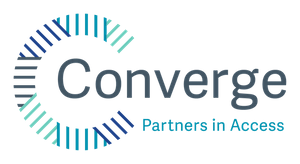
FAQs for Tennessee Title X
Title X (ten) Frequently Asked Questions
Converge has been awarded $3.9M to support Title X services in Tennessee. This frequently asked questions document has been created to support initial conversations with potential network partners. Additional questions may be directed to Converge’s Co-Founder/Co- Executive Director, Danielle Lampton (dlampton@convergeaccess.org) and/or Annabel Henley, Tennessee Title X Director (ahenley@convergeaccess.org).
What is Title X?
Title X is the only federal grant program dedicated solely to providing individuals with comprehensive family planning and related preventive health services. For over 50 years, Title X family planning clinics have played a critical role in ensuring access to a broad range of family planning and related preventive health services for millions of individuals with lower incomes or without insurance.
Family planning services delivered by Title X recipients include a broad range of medically approved services, which includes all Food and Drug Administration (FDA)-approved contraceptive products and natural family planning methods for clients who want to prevent pregnancy and space births; pregnancy testing and counseling; assistance to achieve pregnancy; basic infertility services; sexually transmitted infection (STI) services; and other preconception health services. Title X services are voluntary, confidential, and provided regardless of one’s ability to pay. For many clients, Title X clinics are their only ongoing source of healthcare and health education.
The HHS Office of Population Affairs (OPA) funds Title X family planning service grantees who support hundreds of subrecipients and thousands of service sites. Converge serves as the sole Title X grantee for Mississippi.
Learn more about Title X Service Grants here.
What is Converge?
Converge is a Mississippi-based nonprofit that believes that all people deserve high quality, affordable sexual and reproductive health care services.
Converge will be hiring a Tennessee-based staff to lead Converge’s Tennessee Title X programs; these job announcements will be posted on Converge’s website.
As the sole Title X grantee for the state of Mississippi, Converge receives federal funds that are re-granted to 26 healthcare clinics throughout the state to support the delivery of sexual and reproductive healthcare. Converge’s diverse Title X provider network includes federally qualified health centers (FQHCs), university-based clinics, and community-based organizations.
Learn more about Converge here.
What is Converge’s Role in Supporting Title X Services in Tennessee?
In March 2023, the Office of Population Affairs notified the Tennessee Department of Health that it did not plan to issue continued Title X funding due to the department’s non-compliance with Title X regulations.
To ensure continued access to quality family planning services throughout Tennessee, in September 2023, the Office of Population Affairs issued supplemental funding to both Converge and The Virginia League For Planned Parenthood. Converge will pass-through or re-grant Title X funding to a network of direct service providers and community-based organizations that can support the delivery of Title X services.
Converge believes that the people of Tennessee deserve high-quality family planning services. As a Title X grantee in a neighboring state, Converge is well-equipped and well-positioned to support the development of a strong Title X provider network in Tennessee to deliver these critical services across the state.
If your agency is interested in learning more about Title X funds, please click here to fill out a brief survey. New sub-recipients participate in an onboarding period before they are expected to start providing services in accordance with Title X requirements. Converge expects to award sub-grant awards for this onboarding period in early 2024.
Interested parties are invited to contact Converge’s Co-Founder/Co- Executive Director, Danielle Lampton (dlampton@convergems.org).
What are the Key Benefits in of Participating in Title X?
The major benefits of receiving Title X funding include:
- Equitable Access. Title X funding is designed to reduce barriers to care for all clients, especially people from low-income families, people of color, and others who have been historically underserved, marginalized, and adversely affected by persistent poverty and inequality. Key strategies for advancing equity include removing barriers to accessing services, improving the quality of services, and providing services that are client-centered. Examples of Title X strategies aimed at advancing equity include providing services on a sliding scale, not denying services due to an inability to pay, providing services regardless of a client’s residency status and income verification, and ensuring that services are voluntary, free from coercion, trauma-informed, and representative of the community.
- Quality. Title X is considered the gold standard for family planning care, guided in part by the Quality Family Planning (QFP) Recommendations. The QFP Recommendations support Title X providers in delivering quality family planning services within a broader context of preventive services, improving health outcomes. Title X providers also are required to conduct quality improvement of their family planning services on an ongoing basis—and to engage the community in program development, implementation, and evaluation.
- Confidentiality. The Title X family planning program guarantees access to confidential services for all clients, including adolescents. Title X projects may not require consent of parents or guardians for the provision of services to minors, nor can any Title X project staff notify a parent or guardian before or after a minor has requested and/or received Title X family planning services. Unless required by law or necessary to provide services, providers cannot disclose Title X client information without the client’s written consent.
- Education and Training Support. Title X providers are supported by the Reproductive Healthcare National Training Center and the Clinical Training Center for Sexual and Reproductive Health and receive access to free high-quality training, including continuing education opportunities. OPA also facilitates opportunities for peer sharing and support by convening expert work groups that promote best practices and emerging approaches in the delivery of family planning care.
- Funding Flexibility. In addition to supporting clinical service delivery, Title X funding can be used to support family planning program operations and infrastructure—from staff and operations costs to support for community education and outreach activities.
- Discount Drug Pricing. Agencies that receive Title X funding are eligible to enroll as a covered entity in the 340B Drug Pricing Program, allowing them to offer Title X clients with covered outpatient drugs and devices at a significant discount—and supporting the availability of the full range of contraceptive methods.
How Can Title X Funds be Used?
Agencies can use Title X funds to pay for a variety of expenses. In addition to clinical services for uninsured and underinsured clients, Title X funds can cover staff training, quality assurance and quality improvement activities, program promotion and outreach, IT support, salaries and benefits, and other costs that support the delivery of Title X services.
All funds granted for Title X family planning service projects must be expended only for the purpose for which the funds were awarded and in accordance with the approved application and budget. Title X funds cannot be used:
- In a project where abortion is a method of family planning.
- For lobbying activities or advocacy.
- To purchase equipment.
What Services Can be Supported With Title X Funds?
Converge’s Title X project includes the following services:
- Contraceptive Counseling
- Contraception
- Wellness exams
- Breast and cervical cancer screenings
- Pregnancy testing and counseling
- STI screening and treatment
- HIV screening
- Fertility counseling and referral
- Preconception health and education
The following services are not covered by Converge’s Title X project:
- Primary care
- Abortion
- Colposcopy, LEEP of biopsies
- Extensive genetic counseling and evaluation
- Advanced infertility services
- Laboratory services alone
For additional information on required clinical services, see Family Planning and Related Preventive Health Services Checklists for Women and Men.
What Qualifies as a Title X Family Planning Visit?
A family planning encounter is a documented contact between an individual and a family planning provider that is either face-to-face in a Title X service site or virtual using telehealth technology. The purpose of a family planning encounter is to provide family planning and related preventive health services to female and male clients who want to avoid unintended pregnancies or achieve intended pregnancies. In order to count as a family planning encounter, a written record of the services provided during the visit must be documented in the client record.
For additional information on how to determine which visits and clients qualify for the purposes of Title X reporting, see Understanding FPAR Definitions: What is a Family Planning Encounter and Who is a Family Planning User?
What are the Administrative Requirements For Participating in Title X?
Title X services are guided by the requirements of the Title X statute, regulations, and legislative mandates and Title X program expectations.
Title X sub-recipient clinics are required to use a sliding fee scale for patients who are under 250% of the federal poverty level (FPL); patients who are at/under 100% of the FPL must be charged $0.
To ensure compliance with clinical and administrative mandates and expectations, Converge staff will conduct yearly site visits of each sub-recipient clinic. Additionally, because all family planning clients benefit from Title X support, when an agency receives Title X funds, it agrees to report data on all of its family planning clients, services, revenue, and expenses—regardless of payer or funding source.
Each year, Converge must report the following data to OPA via the Family Planning Annual Report (FPAR): number of family planning clients and encounters, select demographic characteristics, and services provided. When an agency receives Title X funds, it agrees to report this data for all family planning clients, regardless of payer source (e.g., Medicaid, private insurance, self pay).
For agencies that provide multiple types of services, clients may have visits in which they receive family planning services as well as other services—such as primary care—that are covered under different grant-funded programs. These visits are often referred to as “dual visits” or “integrated visits,” and they frequently occur in Title X-funded federally qualified health centers (FQHCs). Title X-funded agencies must report dual visits in both the Uniform Data System (UDS)—or other relevant grant-funded system—and FPAR.
Converge provides individualized training and technical assistance to all network providers in support of required data collection and reporting. Converge also utilizes a web-based data dashboard that integrates with an agency’s electronic medical record, making it much easier for clinic staff to collect and report data.
For additional information on these administrative reporting requirements, see Understanding the Total Program Concept and Integrating Title X with Primary Care: Developing and Implementing Compliant Sliding Fee Discount Schedules Job Aid.

